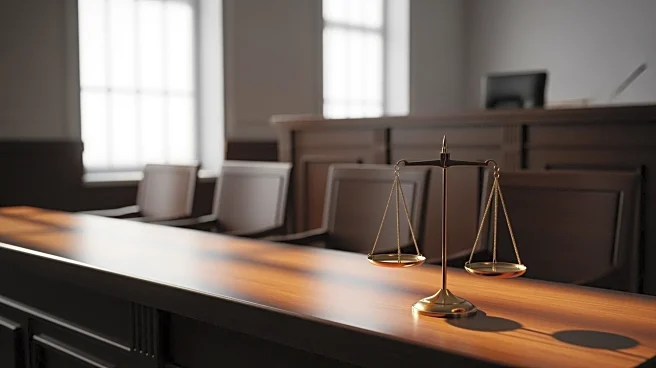What's Happening?
U.S. immigration courts have undergone significant changes under directives issued during President Trump's second term, leading to concerns about due process and the rights of immigrants. Courthouse arrests
have become more common, and judges have been terminated at unprecedented rates. The Associated Press reported a case where a Cuban man was targeted for deportation during a routine hearing, highlighting the coordinated efforts between government attorneys and ICE agents. These changes have led to a system that prioritizes deportation quotas over fair adjudication, raising alarms among legal advocates and immigrant families.
Why It's Important?
The transformation of immigration courts has profound implications for the rights of immigrants and the integrity of the U.S. legal system. The prioritization of deportation quotas over due process undermines the principles of justice and fairness, potentially leading to wrongful deportations and family separations. This shift may also deter immigrants from seeking legal recourse, fearing arrest and deportation. The changes could impact U.S. immigration policy and influence public opinion on immigration reform, as well as affect the lives of thousands of immigrants and their families.
What's Next?
Legal advocates and immigrant rights organizations are likely to challenge the changes in immigration courts, seeking to restore due process and protect the rights of immigrants. There may be calls for legislative action to address the issues raised by the transformation of the courts. The situation could lead to increased scrutiny of immigration policies and practices, potentially influencing future reforms. Additionally, the changes may become a focal point in political debates, particularly in the context of upcoming elections.










